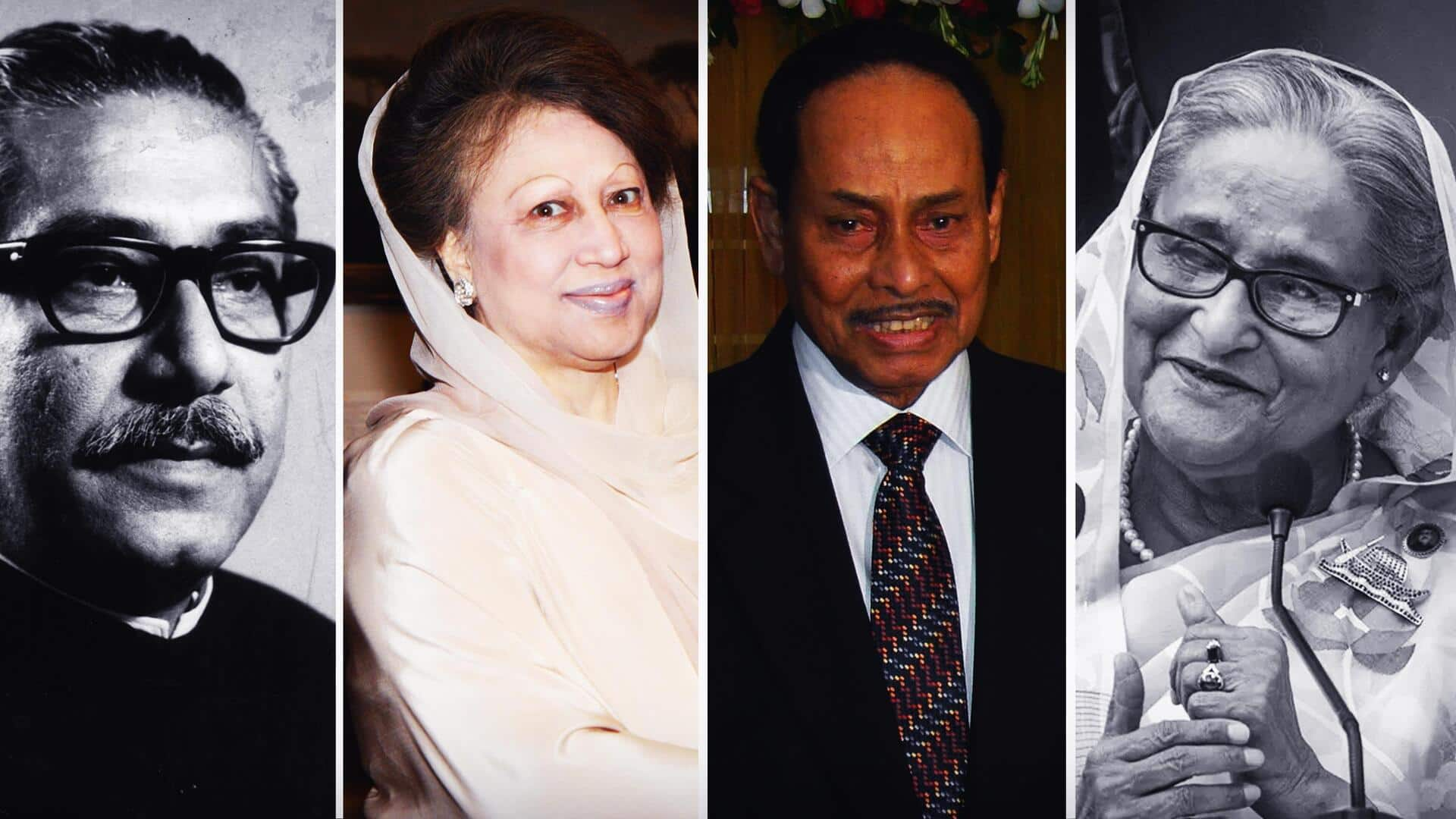
Explained: Who are the key figures in Bangladesh's politics
What's the story
Bangladesh Prime Minister Sheikh Hasina resigned on Monday and fled to India amid widespread protests against her government.
Army Chief General Waker-Us-Zaman announced on Monday afternoon that an interim government would be established.
These developments followed renewed agitations sparked by recent student protests against expanding government job quotas for descendants of Bangladeshi freedom fighters.
Protests
Opposition parties boycotted polls in January
The latest student protests are believed to be fueled by broader dissatisfaction with Hasina's 15-year rule.
In the January general elections, many opposition parties, including former PM Khaleda Zia's Bangladesh Nationalist Party (BNP), boycotted the polls.
Let's take a look at the major players in Bangladesh politics at the moment.
Legacy
Sheikh Hasina
Hasina, 76, leader of the Awami League, was serving her fifth term as Prime Minister since January 2024.
Her father, Sheikh Mujibur Rahman, known as "Bangabandhu," is revered as the "Father of the Nation."
During Hasina's tenure, Bangladesh experienced significant economic growth and saw an increase in women's participation in the workforce, particularly in the textile industry.
Political party
Awami League
The Awami League, founded in 1949, played a pivotal role in Bangladesh's fight for independence.
The party stood against the Pakistan government for imposing the Urdu language and not devolving powers to East Pakistan province.
Notably, Hasina was elected as the party president in 1981, continuing her father's legacy of leadership within the party.
Pioneer
Khaleda Zia
Zia, 79, made history as the first woman Prime Minister of Bangladesh when she was elected in 1991.
She entered politics following the assassination of her husband Ziaur Rahman, founder of the BNP.
Despite serving another term as Prime Minister from 2001 to 2006, Zia has since withdrawn from public life due to health concerns.
Opposition
Bangladesh Nationalist Party
The BNP founded by Rahman in 1978, initially gained significant support through student politics.
However, the party's popularity has waned in recent years.
The BNP boycotted the 2024 elections, alleging that they were rigged by the Awami League.
The BNP is said to be the largest opposition party in the country.
Islamist party
Jamaat-e-Islami
The Jamaat-e-Islami, one of the largest Islamist parties in Bangladesh, was founded in 1975.
Although it allied with the BNP in the past, it was banned from participating in national elections in 2013 because its constitution opposed secularism.
Despite the ban, the party was permitted to hold meetings and rallies.
Amid the 2024 protests, Hasina accused Jamaat-e-Islami and its student wing, Chhatra Shibir, of exploiting the unrest and inciting violence.
Army officer's party
Jatiya Party
The Jatiya Party was established by retired army officer Hussain Muhammad Ershad in 1986.
Despite being ousted in a coup and imprisoned for corruption, Ershad managed to maintain relevance in Bangladeshi politics for three decades.
Currently, the party holds power mainly in the Rangpur region of northwestern Bangladesh, showcasing its enduring influence.